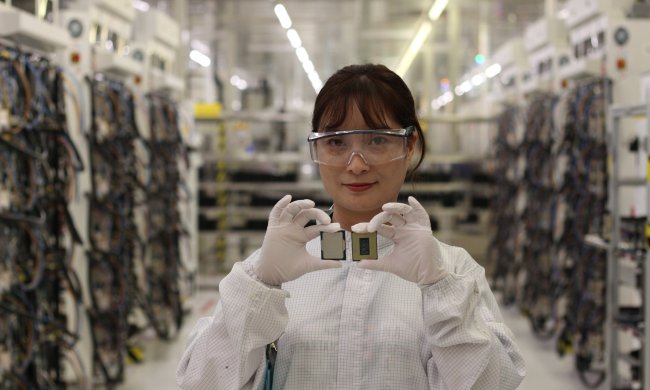According to leaked benchmarks this week, Intel’s soon-to-be-released 10th-generation mobile chips will be capable of outperforming comparable chips from AMD’s Ryzen 5 line. The tests pitted the i7-1065G7 model from Intel’s 10th generation of CPUs, more commonly known by its “Ice Lake” moniker, against the Ryzen 5 3500U from AMD and found that the Intel hardware had a clear performance lead over its competitor. Even more impressively, the Ice Lake chip managed a higher number of instructions per clock (IPC) than the Ryzen 5 despite its comparatively slow clock, at only 1.3GHz compared to the Ryzen 5’s 2.1GHz.
Against the backdrop of the recent dramatic showdown the two companies played out at Computex 2019 less than a month ago in dueling keynote announcements, the leaked benchmarks lend themselves well to the narrative of the established player reasserting dominance over an upstart rival. AMD was able to evoke a palpable wow factor at its Computex address this year with the unveiling of its 7nm die Zen 2 Ryzen 3000 line, an announcement that Intel was hard-pressed to match with only 10nm chips by comparison and 10th-generation desktop chips nowhere in sight. Intel is also starting to lose ground in the high-end performance space with AMD’s Ryzen 9 3900X giving Intel’s i9-9900K a run for its money. AMD is also outflanking Intel in the ultra high-end market with the release of a 64-core Threadripper that Intel has no easy answer to.
Considering the fierce battle that has been publicly raging between Intel and AMD over the past months, the encouraging performance from Intel’s Ice Lake chips gives the chip giant some welcome breathing room in fending off its competitor. While the premature benchmark has since been taken down, if eventual official performance metrics emerge to corroborate them, there’s a good chance it will help drive sales of Ice Lake-powered devices, which have kicked off with an announced XPS laptop Dell. Mobile chips with the kind of performance that the rumored tests purport would also allow Intel to hold on to a key market while it puts the finishing touches on Project Athena devices, which reinforce powerful processors with faster connectivity.

